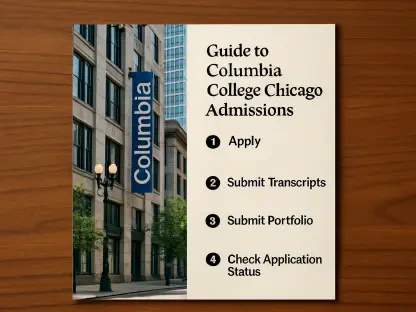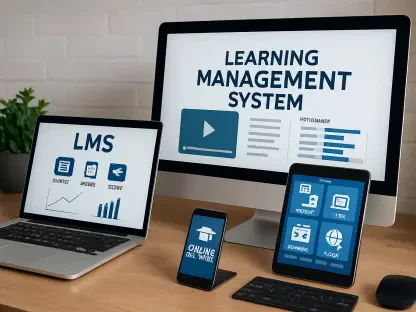In the vast landscape of American education, where urban centers often dominate stories of success, the remarkable ascent of two young women from a tiny rural town in Idaho stands out as a testament to the unexpected power of small-town beginnings. Rayne Martinez and Martha Smith, hailing from Kooskia, a close-knit community with a high school of just 170 students, have defied conventional narratives by rising to prominent roles as student body presidents at Lewis-Clark State College and the University of Idaho, respectively. Their journey from the quiet streets of Clearwater Valley to the helm of collegiate leadership reveals a compelling truth: rural roots can cultivate resilience, confidence, and ambition in ways that larger environments sometimes cannot. This narrative explores how the intimacy of their upbringing, coupled with personal determination and community support, became the foundation for their extraordinary achievements in higher education.
The Power of a Close-Knit Community
The rural setting of Kooskia, Idaho, provided a unique backdrop for Martinez and Smith to develop their early leadership skills in an environment where everyone knew each other. Growing up in a small town meant that opportunities for involvement were not only accessible but often encouraged by familiar faces who believed in their potential. At Clearwater Valley High School, both women found themselves drawn to student council roles, where the supportive atmosphere allowed them to experiment with leadership without the overwhelming pressure of judgment. This nurturing environment fostered a sense of belonging that proved critical to their confidence. For Martinez, the encouragement to take on responsibilities came naturally in a place where teachers and peers doubled as extended family. This tight-knit dynamic offered a safety net, enabling her to voice ideas and take risks that might have felt daunting in a larger, more impersonal setting, ultimately shaping her path toward greater aspirations.
Beyond the school walls, the community of Kooskia played an equally vital role in instilling values of perseverance and mutual support that Martinez and Smith carried into their later endeavors. Family ties and intergenerational mentorship were particularly influential, as seen in Smith’s experience with Martinez’s father, who served as her student council advisor. Such personal connections provided tailored guidance that helped her navigate early challenges and build a foundation of self-assurance. Meanwhile, Smith’s role as the eldest daughter in her family translated into a natural inclination to lead, a trait reinforced by the responsibilities she embraced in her hometown. The intimacy of rural life meant that individual achievements were celebrated collectively, creating a ripple effect of inspiration. This communal spirit not only bolstered their resolve but also ingrained a deep sense of duty to give back, a value that would later define their leadership styles in college and beyond.
Navigating the Leap to College Leadership
Transitioning from the familiarity of a small town to the broader, more competitive landscape of college life presented significant challenges for both Martinez and Smith, yet their rural upbringing equipped them with unique tools to adapt. For Martinez, stepping into Lewis-Clark State College, Idaho’s smallest public four-year institution, still felt like a leap into the unknown, with an enrollment far surpassing Kooskia’s entire population. Initial self-doubt crept in as she grappled with the scale of her new environment, but the resilience built from years in a supportive community helped her push through. Her vibrant energy and dedication as ASLCSC President earned high praise from student involvement coordinators, who noted her ability to connect with peers. The skills honed in a small high school—adaptability, personal accountability, and a knack for building relationships—proved invaluable as she navigated this larger stage with determination.
Smith, who graduated two years ahead of Martinez, provided a guiding light during this critical transition, embodying the power of mentorship that often emerges from shared small-town roots. Having already carved her path as student body president at the University of Idaho, she offered advice and encouragement that bridged the gap between high school and college for Martinez. This dynamic of mutual support highlights how rural connections can extend beyond geographic boundaries, creating networks of inspiration even in unfamiliar settings. Smith’s earlier success demonstrated that the confidence nurtured in Kooskia could translate into leadership on a grander scale, while her guidance ensured that Martinez felt less isolated in facing similar hurdles. Their stories underscore a broader theme: the personal bonds and lessons learned in a small community can serve as a compass, helping individuals steer through the complexities of larger academic and professional arenas with grace and tenacity.
Aspirations Rooted in Service
Looking ahead, both Martinez and Smith carry forward the values of their hometown through ambitious plans that reflect a commitment to serving others. Smith, currently interning with the U.S. Senate Foreign Relations Committee, envisions a future in law, with the goal of returning to Idaho to practice and contribute to the state that shaped her. This sense of obligation to repay the support she received drives her pursuit of higher education and professional growth. Her journey reflects a deep-rooted belief in the importance of community, a principle instilled by her rural upbringing. The desire to make a tangible impact in Idaho speaks to the enduring influence of Kooskia’s ethos, where personal success is often measured by the ability to uplift others. Her path illustrates how small-town origins can fuel a broader vision of public service, extending the lessons of mutual care into influential spheres.
Martinez, a junior pursuing a degree in elementary education, shares a parallel dedication to making a difference, with aspirations to teach and eventually become a principal. Her dream includes a personal touch—spending a few years teaching in Puerto Rico, her family’s place of origin, as a way to honor her heritage while giving back. This blend of professional and personal goals showcases how her small-town foundation instilled a sense of purpose that transcends borders. The encouragement she received in Kooskia to dream big, despite limited local resources, continues to propel her forward. Her focus on education as a means of empowerment mirrors the mentorship she benefited from, highlighting a cycle of inspiration that rural communities often foster. Together, their future plans reveal a shared commitment to service, demonstrating that the values of support and responsibility learned in a small town can shape impactful careers dedicated to the greater good.
Reflecting on a Legacy of Rural Strength
Looking back, the journeys of Rayne Martinez and Martha Smith from the modest streets of Kooskia to the forefront of college leadership stand as powerful reminders of the potential embedded in rural beginnings. Their stories challenge prevailing stereotypes that equate small towns with limited opportunities, showing instead how such environments cultivate resilience and determination. The close relationships and mentorship they experienced in their formative years proved instrumental in their rise, while their advocacy for initiatives like the Idaho LAUNCH scholarship alongside state leaders reflects a desire to expand access for others. As their paths unfold, the lessons of community support and personal grit remain central to their achievements. Moving forward, their experiences suggest a call to recognize and invest in the unique strengths of rural youth, ensuring that more hidden talents are given the chance to shine on larger stages.









